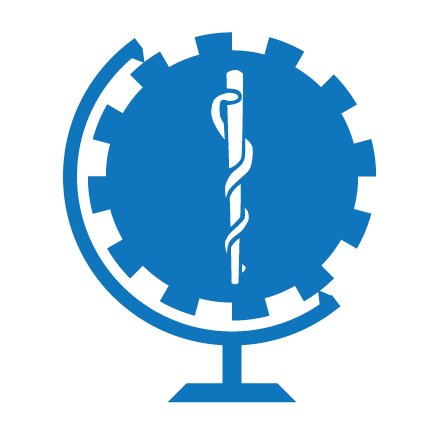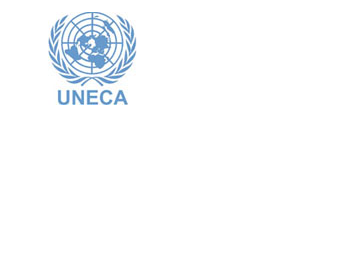Capacity Building: One more externality?
Here at LEED we emphasize the importance of fostering local capacity in all that we do; the value of increasing local skills, knowledge, and abilities cannot be overstated. We often posit that our interventions and approaches strengthen local capacities. This core value becomes one more attribute that enhances our initiatives as compared to others. But does capacity building really matter? Of course it matters in terms of our view of sustainable development, but is it really valued by those who benefit from it—the local individuals and communities? In economics, a positive externality is something from which people benefit, but that benefit... More
Improved Cancer Diagnosis with Hand-held Device & Smartphone Technology
The traditional method of diagnosing cancer is to extract a tissue sample surgically from a suspicious lump, which is then sent to a radiology department where they search for discrepancies in cell shape and tell-tale proteins. The results from these tests can take days, and makes the wait for patients and their families so much more agonizing. But this may all change with a new hand-held device. Scientists and researchers from Harvard University, MIT and Massachusetts General Hospital have developed a mini nuclear magnetic resonance (NMR) scanner that uses antibodies and magnetic particles to identify cancerous cells. Small samples of cells... More
Leadership+Innovation=Life Saved
On Valentine’s Day kids in Kenya were showered with love. Love in the form of pneumonia vaccines that could save them from their potential premature death. This state of the art vaccine was introduced in Kenya only 18 months after having entered the European markets. Normally a vaccine would take around 15-20 years after its initial launch to enter a developing country. This change has been brought about by a new concept of Advance Market Commitment (AMC). The currently existing pneumococcal vaccine is sold at over US$70 per dose in industrialized countries. But thanks to the AMC, the long term price for developing countries will be US$ 3.50. AMC strives to... More
Bringing attention to neglected diseases
Long story short, the biotech industry is only in it for the money: I was surprised to hear this, but diseases that we know that affect hundreds of millions, kill hundreds of thousands, yet know how to avoid or treat (such as malaria and tuberculosis), are not considered priority markets for industries. As are result of this, there is a surprising lack of investment in R&D for these neglected diseases. The Center for Global Health R&D Policy Assessment is tackling this issue from a policy standpoint. Their site hosts a bank of assessments and resources to aid interested parties (governments, investors, More
Siren of the financial meltdown talks at Harvard Book Store
Thanks to a lack of Valentine's day plans, I was fortunate enough to be able to go listen to Dambisa Moyo speak at the quaint Harvard Book Store about her new book How the West Was Lost; in her own terms, this is a thematic continuation of her New York Times bestseller Dead Aid in that it discusses how unintended consequences can arise from good intentions. Moyo’s succinct talk focused on the three economic factors she believes are crucial in discussing countries’ economic growth: capital, labor and productivity. She discussed the differences between China’s economic policy and that of the United States, More
Gandhian Engineering?
Dr. Mashelkar’s speech presents a new approach to solve problems that will mean “more for less for more.” What does this mean? We need to look for solutions that provide “value for many,” rather than “value for money.” By requiring products to be extremely affordable, innovative products emerged, such as the Nano car, Jaipur Foot and a treatment for Psoriasis. Drawing upon different fields and using non-traditional materials and methods enabled developers to meet their customers’ needs. In Gandian engineering innovators from different fields come together to solve problems for many, rather than focusing on creating solutions only the elite that can afford. While there is... More
Mhealth – a promising future ?
Mobile health is likely to play an important role in the future of health supervision in many developing countries. A lot is being done to ensure that a wide range of issues like detecting counterfeit drugs, personalized individual health tips, diagnosis of mild diseases and medical prescriptions can be all done virtually over the phone. It is a very interesting proposition where the main idea is to have every individual’s medical data on a central data system secured. (In India there are talks about how each citizen should have a UID -a unique ID that would encompass all the identifications... More
Cellphone GPS for mhealth monitoring
Here's a really interesting mhealth application: FLOW, an android app that you can download to your cell phone and go around to monitor the status and positions of water sources. I'll let you read the article for more details, but the most enlightening thing I took from it was the story of what inspired FLOW. According to a government report a few years ago, there was enough water wells in a certain district of Malawi. But the developer decided to make a detailed check, going out to the district with a GPS tracker and mapping all the water wells. The... More
New website offers a novel, interactive approach to tackling global development issues
Just launched: Engineering for Change, aptly shortened to E4C, is a new website created through the partnership of three major organizations: the American Society of Mechanical Engineers (ASME), Engineers Without Borders- USA (EWB-USA) and the Institute of Electrical and Electronics Engineers (IEEE). It aims to provide a virtual meeting-ground for not just engineers, but also humanitarians, non-governmental organizations (NGOs), and basically anyone who thinks they may have productive input as to how best tackle developmental issues and challenges in innovative ways. Through the brainstorm platform provided, referred to as “Workspace”, members of the site can collaborate on projects which are conveniently... More
The blog is up!
The blog will be a source of insights from LEED members on projects, events, global news, etc. Check back for updates!











